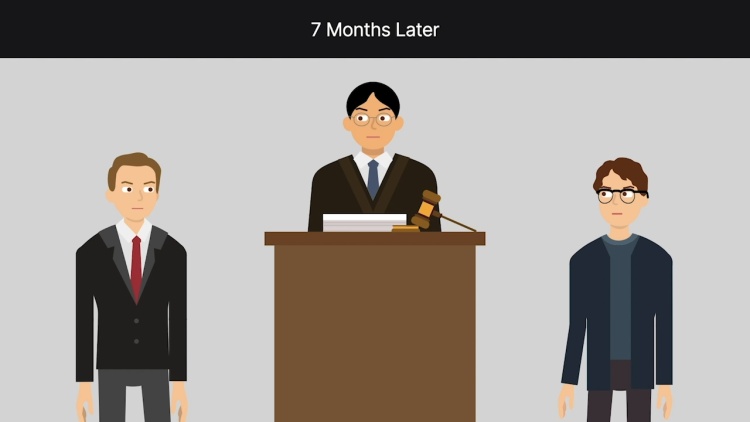Barber v. Page
United States Supreme Court
390 U.S. 719 (1968)

- Written by Christine Raino, JD
Facts
Jack Barber and Charles Woods, who were being tried in Oklahoma state court for armed robbery, retained an attorney named Parks to represent them both. However, at the preliminary hearing, Woods waived his privilege against self-incrimination in order to testify and Parks withdrew as his counsel, while continuing to represent Barber. When Woods incriminated Barber at the preliminary hearing, Parks did not cross-examine Woods. At Barber’s trial seven months later, the State of Oklahoma (State) (plaintiff) introduced a transcript of Woods’ testimony from the preliminary hearing, claiming that Woods was not available to testify because he was incarcerated in federal prison in Texas. The State made no effort to have Woods testify at trial. The court admitted the transcript over Barber’s objection and Barber was convicted. After unsuccessful appeals in the state appellate courts, Barber petitioned for a writ of habeas corpus in federal court. The writ was denied in district court, and that decision was affirmed in the court of appeals. Barber appealed to the United States Supreme Court.
Rule of Law
Issue
Holding and Reasoning (Marshall, J.)
What to do next…
Here's why 899,000 law students have relied on our case briefs:
- Written by law professors and practitioners, not other law students. 47,000 briefs, keyed to 994 casebooks. Top-notch customer support.
- The right amount of information, includes the facts, issues, rule of law, holding and reasoning, and any concurrences and dissents.
- Access in your classes, works on your mobile and tablet. Massive library of related video lessons and high quality multiple-choice questions.
- Easy to use, uniform format for every case brief. Written in plain English, not in legalese. Our briefs summarize and simplify; they don’t just repeat the court’s language.





